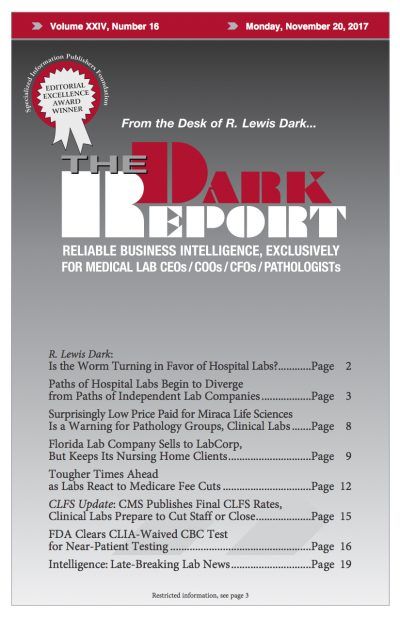CEO SUMMARY: Market clearance of the first-ever CLIA-waived analyzer for complete blood count and three-part differential tests could cut time-to-answer from days to mere minutes for one of the top 20 tests by volume performed at core laboratories. Developer Sysmex America, Inc., foresees its analyzer as a complement to central labs. Basic diagnostics would be …
FDA Clears Waived CBC For Near-Patient Testing Read More »
To access this post, you must purchase The Dark Report.


